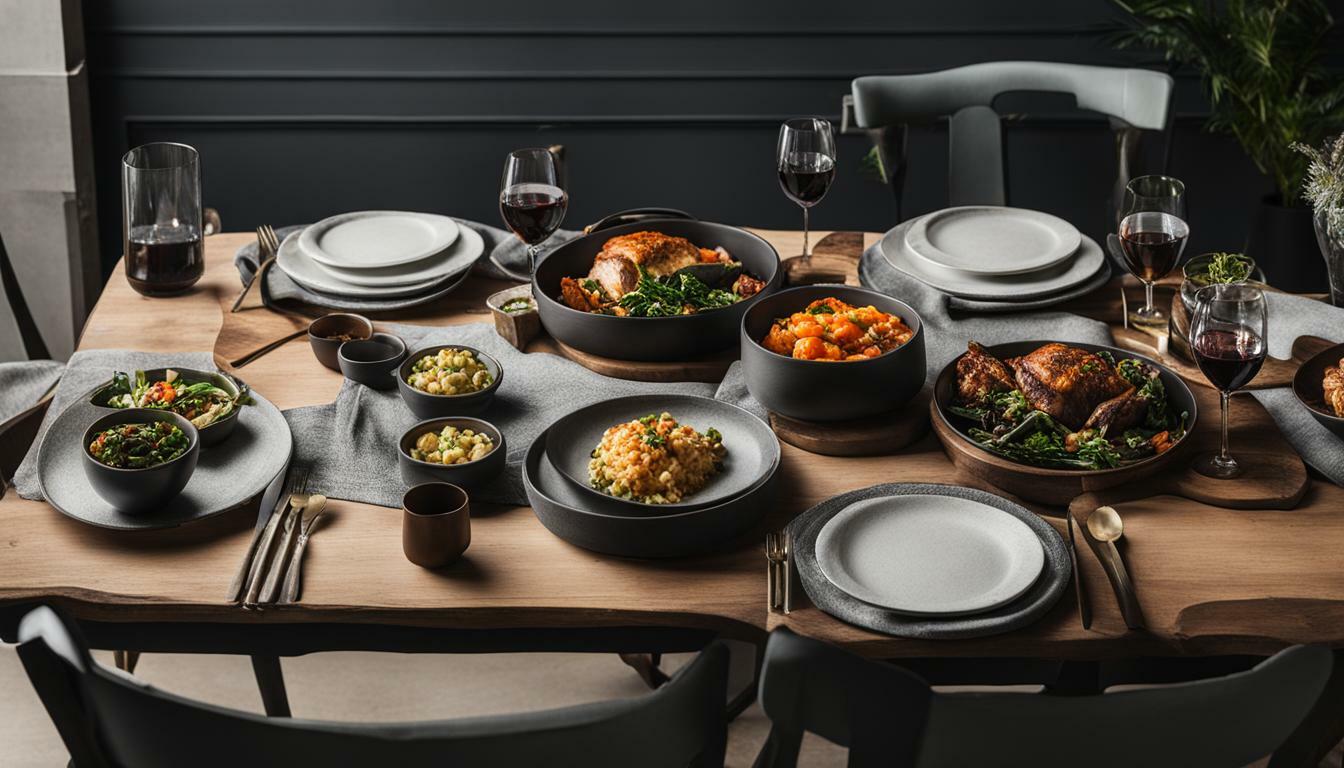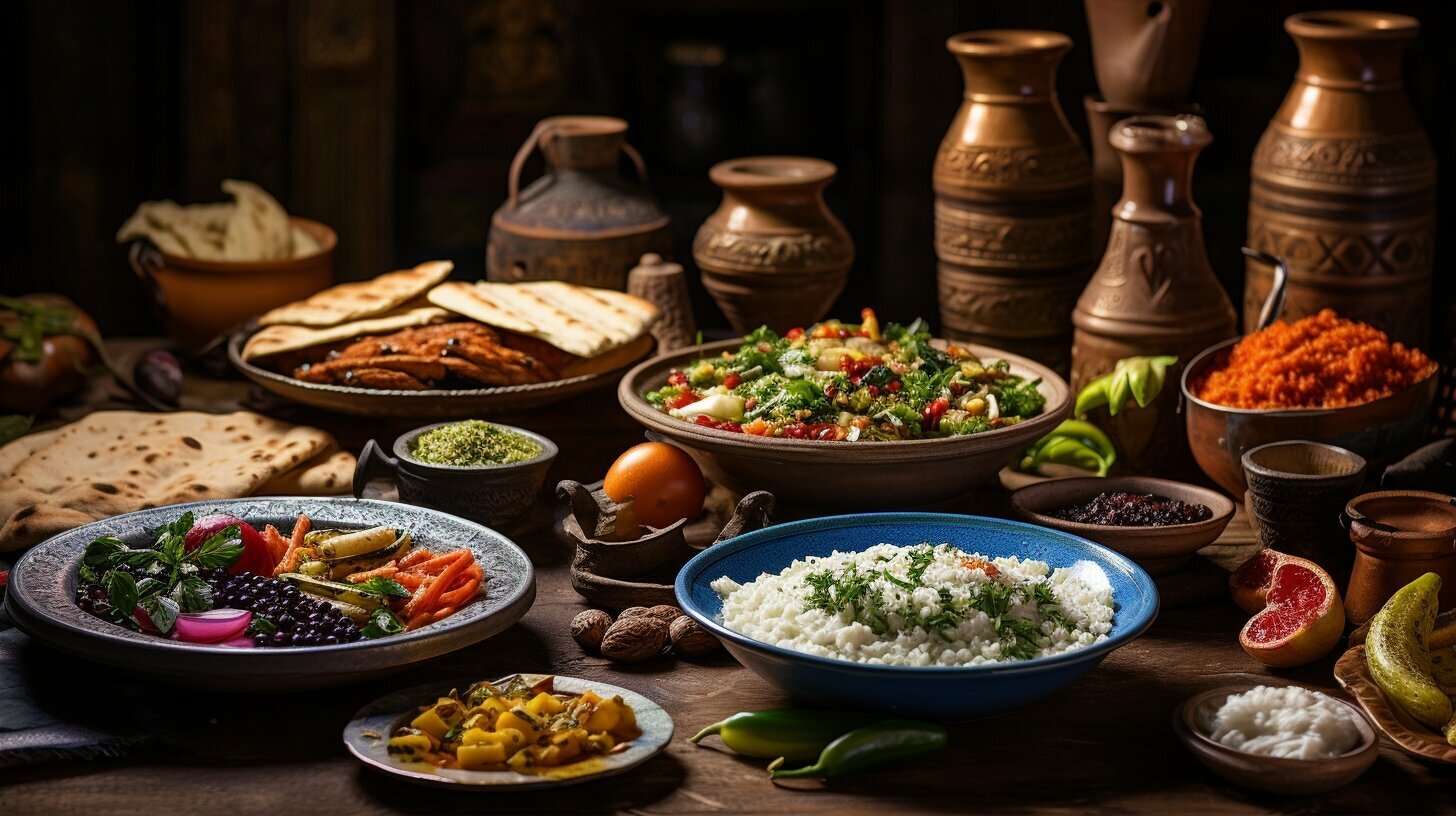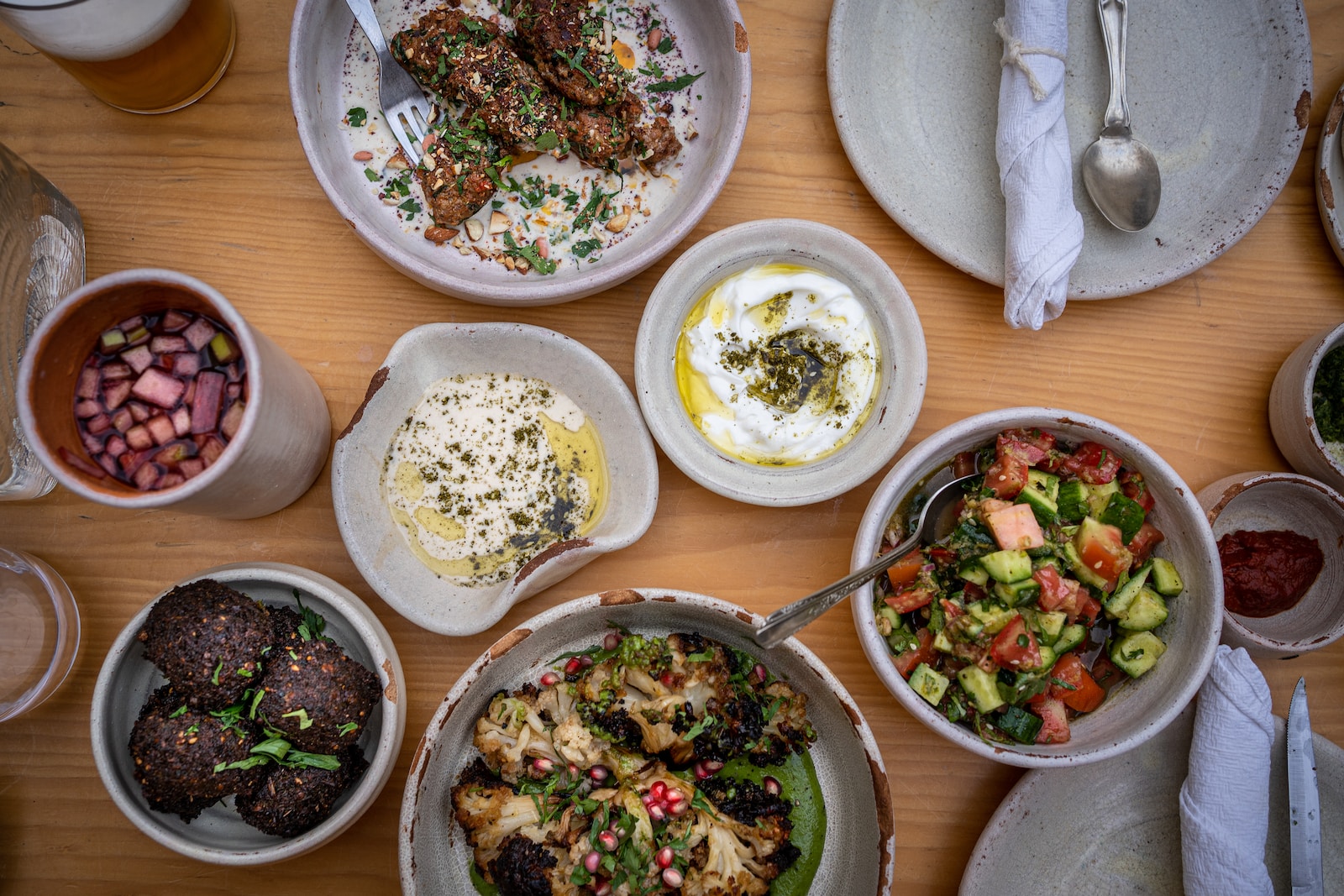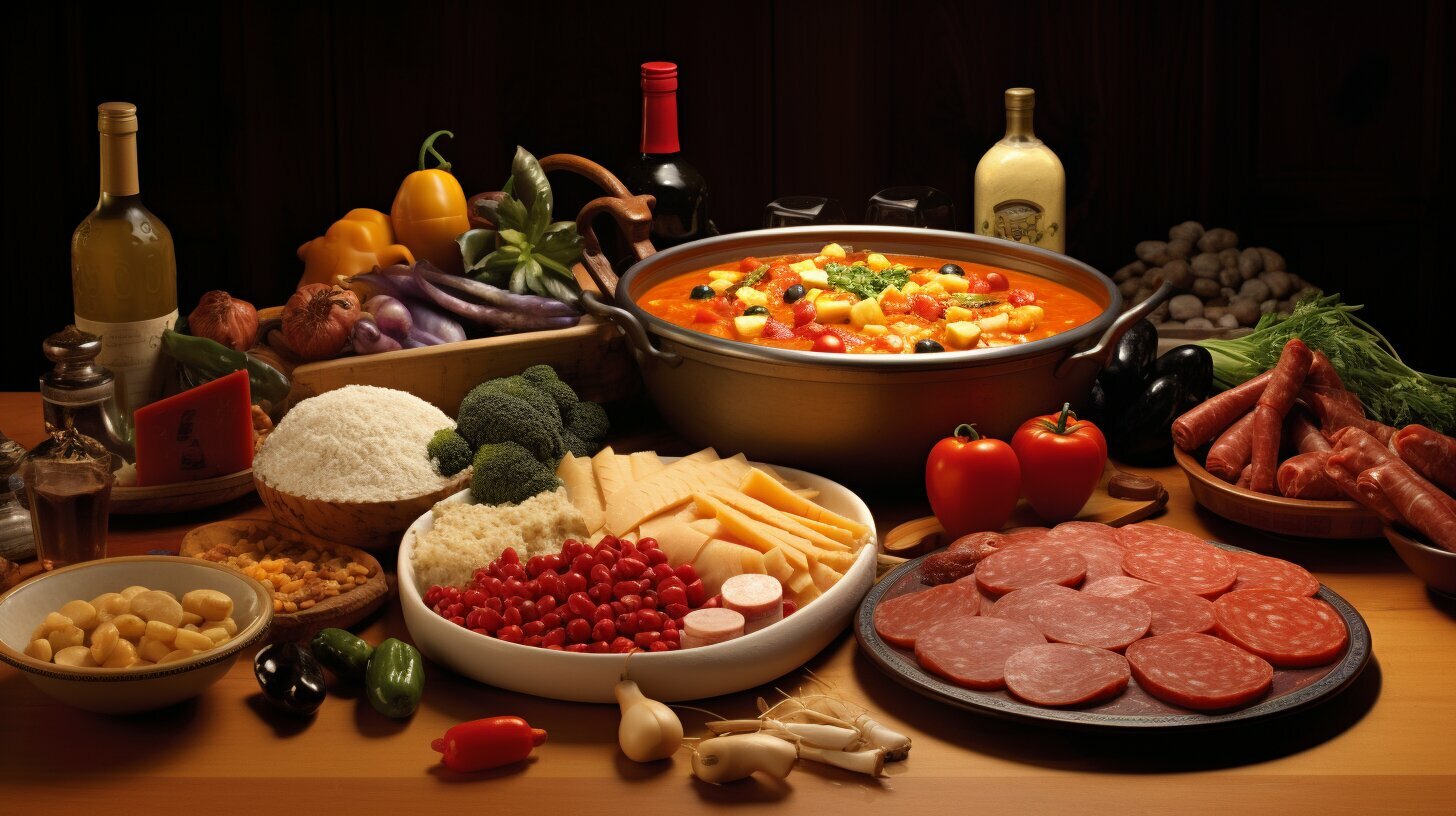Many people use the terms “dinner” and “supper” interchangeably, but there are subtle differences between the two American meals. In this article, we will explore the semantics, usage, and meaning of dinner and supper, and help you understand the distinctions between these two meals.
Key Takeaways
- Dinner and supper traditionally referred to different meals, with dinner being the main meal of the day and supper a lighter meal eaten closer to bedtime.
- The distinction between dinner and supper is often influenced by regional, cultural, and personal preferences.
- Usage of dinner and supper can depend on social circumstances and personal preferences, with dinner often associated with larger gatherings and supper with smaller, more casual meals.
- Personal preferences can play a significant role in determining whether one uses dinner or supper.
- In modern usage, the distinctions between dinner and supper have become less rigid, with the terms often used interchangeably.
Defining Dinner and Supper
Let’s start by understanding the basic definitions of dinner and supper. Although the terms are often used synonymously, dinner traditionally refers to the main meal of the day, typically eaten in the evening. On the other hand, supper refers to a lighter, often late-night meal consumed closer to bedtime. The distinction between these meals can vary based on regional, cultural, and personal preferences.
Historical Context and Cultural Variations
Understanding the distinction between dinner and supper requires a look at the historical context and cultural variations of the terms. In the United States, supper was historically the term used for the evening meal in many rural areas. Dinner, on the other hand, referred to a more formal midday meal. This distinction has faded over time, but remnants of this traditional usage can still be found in certain regions.
Across the country, there are differences in the usage of dinner and supper. In some places, the two terms are used interchangeably. In others, dinner may be associated with larger gatherings, while supper is reserved for smaller or more casual meals. These distinctions are not absolute and can vary based on personal preferences and social circumstances.
Fun fact: In some parts of the southern United States, supper is also known as “tea”.
Historically, dinner was associated with a more formal meal, often served in multiple courses and eaten at a set time. Supper, on the other hand, was a lighter meal consumed closer to bedtime. These distinctions have evolved over time, with both terms now used to refer to the evening meal. However, understanding the historical context and cultural variations can provide insight into how the terms have developed and how they are used today.
| Region | Usage |
|---|---|
| Northeast | Dinner is the more commonly used term. |
| South | Supper is more widely used, and may also be referred to as “tea” in some areas. |
| Midwest | Both terms are used interchangeably. |
| West | Both terms are used interchangeably, with dinner being more common in urban areas. |
While there are historical and cultural differences between dinner and supper, the practicality of distinguishing between the two has diminished over time. The terms are often used interchangeably, with personal preferences and social circumstances playing a more significant role in determining their usage.
Usage of Dinner and Supper
The usage of dinner and supper can depend on various factors, including social circumstances and personal preferences. Generally, dinner is associated with larger gatherings, such as family meals or formal events. In contrast, supper is often linked to smaller, more casual gatherings or late-night meals. However, it’s worth noting that the distinction between the two meals is becoming increasingly blurred.
Another aspect to consider is the semantics of the terms. Dinner traditionally refers to the main meal of the day, typically eaten in the evening. It can also be a more formal meal compared to supper. On the other hand, supper refers to a lighter, often late-night meal consumed closer to bedtime.
Understanding the nuances of dinner and supper usage can help determine the appropriate term for a given mealtime situation. It’s important to note that personal preferences can also play a role in deciding which term to use. Some individuals may prefer to use dinner, while others may opt for supper based on their upbringing or cultural background.
Regardless of which term you use, what’s most important is enjoying your meal and the company of those you’re sharing it with.
Regional Variations in Terminology
While the difference between dinner and supper may seem clear-cut, there are regional variations in terminology across the United States that further complicate the debate. In some areas, dinner is the preferred term for the evening meal, while in others, supper is more commonly used.
For example, in the Southern United States, supper is often used to refer to the evening meal, regardless of its size or formality. In contrast, in the Northeastern United States, dinner is typically used to refer to the main evening meal, regardless of whether it is formal or informal.
These regional variations can also be influenced by cultural and personal preferences. Some individuals may prefer one term over the other because of their upbringing or geographic location, while others may use both terms interchangeably.
Despite these variations, however, the distinction between dinner and supper has generally become less significant in modern usage. While there may be nuances in regional and cultural contexts, their importance is often overshadowed by personal preferences and social circumstances.
Influences of Personal Preferences
When it comes to choosing between dinner vs supper, personal preferences can play a significant role. An individual’s upbringing, cultural background, and linguistic habits can all influence whether they use one term over the other.
For some people, dinner may have been the preferred term growing up, while others may have always used supper. Family traditions and geographic location can also influence personal preferences, with some regions of the United States more likely to use one term over the other.
In addition to these external factors, personal associations and linguistic habits can also shape an individual’s choice between dinner or supper. Some may prefer one term based on the connotations it carries, such as the formality of dinner or the casualness of supper. Others may simply use the term they are most comfortable with or consider more natural sounding.
In the end, there is no right or wrong answer when it comes to dinner vs supper. Personal preferences can differ widely, and ultimately, what matters most is the enjoyment of good food and good company.
Modern Usage and Evolution of Dinner and Supper
Over time, the distinctions between dinner and supper have become less strict, and the terms are often used interchangeably. Modern usage tends to focus on personal preferences and social circumstances rather than the historical or regional differences between the two meals.
While some people may still argue for maintaining a clear distinction between dinner and supper, in practical terms, the differences have become blurred, and the choice of terminology often comes down to personal preferences. For example, someone may refer to their evening meal as supper because they associate it with a lighter, more casual meal, while another person may use the term dinner because it feels more formal and substantial.
It’s worth noting that even though the terms dinner and supper may be used interchangeably, there can still be subtle differences in their semantics. For example, dinner may suggest a larger, more formal gathering, while supper may be associated with a smaller, more casual meal. It’s important to be aware of these nuances when choosing which term to use, particularly in a social or formal setting.
The modern evolution of dinner and supper has also led to interesting comparisons between different regions and cultures. For example, in some parts of the United States, supper was historically associated with the evening meal, while in other regions, dinner was the preferred term. Exploring these variations and understanding their cultural and linguistic influences can deepen our appreciation for the unique ways in which language evolves over time.
Conclusion
While the difference between dinner and supper may have been significant in the past, modern usage has blurred the lines between the two meals. While dinner traditionally referred to the main meal of the day, typically eaten in the evening, supper was often a lighter meal consumed closer to bedtime. However, these distinctions can vary based on regional, cultural, and personal preferences.
Today, the terms dinner and supper are often used interchangeably, and personal preferences and social circumstances play a more significant role in determining their usage. Some individuals may use one term over the other based on their family or cultural background, while others may prefer one based on linguistic habits or personal associations.
In the end, what matters most is enjoying good food and good company, regardless of whether you call it dinner or supper. While the debate may continue, it’s important to remember that language is constantly evolving, and the practicality of distinguishing between dinner and supper has diminished over time.
So, whether you’re enjoying a formal dinner party or a casual late-night snack, savor the moment and don’t worry too much about the semantics. After all, a rose by any other name would taste just as sweet.
FAQ
Q: What is the difference between dinner and supper?
A: Dinner and supper are often used interchangeably, but there are nuanced distinctions between the two American meals. Dinner traditionally refers to the main meal of the day, typically eaten in the evening. Supper, on the other hand, refers to a lighter, often late-night meal consumed closer to bedtime.
Q: How are dinner and supper defined?
A: Dinner is the main meal of the day, usually eaten in the evening. Supper, on the other hand, is a lighter meal often consumed later in the evening or closer to bedtime.
Q: What are the historical and cultural variations in the usage of dinner and supper?
A: In many parts of the United States, especially in rural areas, supper was historically the term used for the evening meal. Dinner, on the other hand, was often associated with a more formal midday meal. These distinctions have blurred over time, but remnants of this traditional usage can still be found in certain regions.
Q: How do personal preferences influence the usage of dinner and supper?
A: Personal preferences can play a significant role in whether one uses dinner or supper. Some individuals may have grown up using one term over the other, influenced by their family or cultural background. Others may simply prefer one term based on personal associations or linguistic habits.
Q: Are there regional variations in the terminology used for the evening meal?
A: Yes, different regions in the United States may have distinct preferences for whether they use dinner or supper to refer to the evening meal. Exploring these regional variations can provide further insight into cultural and linguistic differences.
Q: How are dinner and supper used in different social circumstances?
A: Dinner is commonly associated with larger gatherings, such as family meals or formal events. Supper, on the other hand, is often linked to smaller, more casual gatherings or late-night meals.
Q: Can the terms dinner and supper be used interchangeably?
A: Yes, in modern usage, the terms dinner and supper are often used interchangeably, with little regard for their historical or regional differences.



